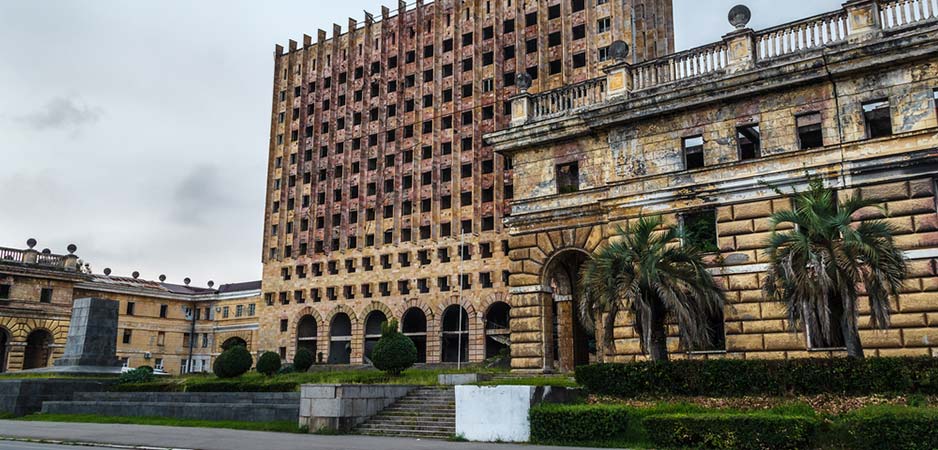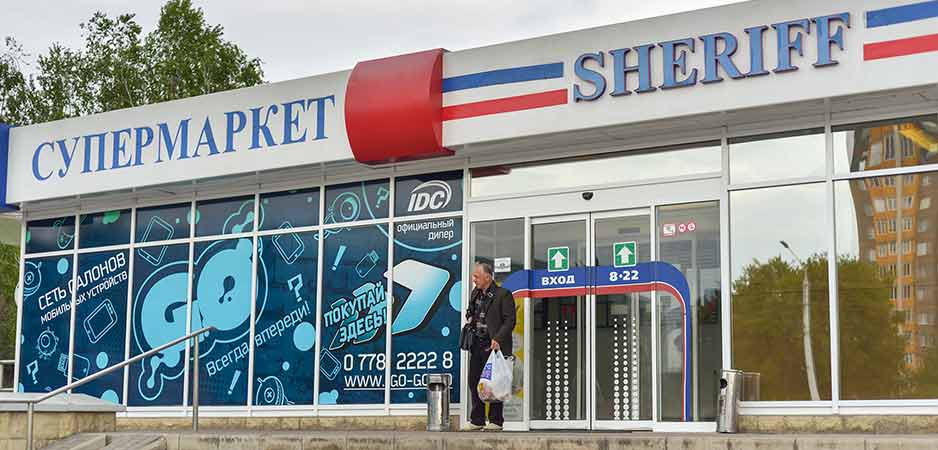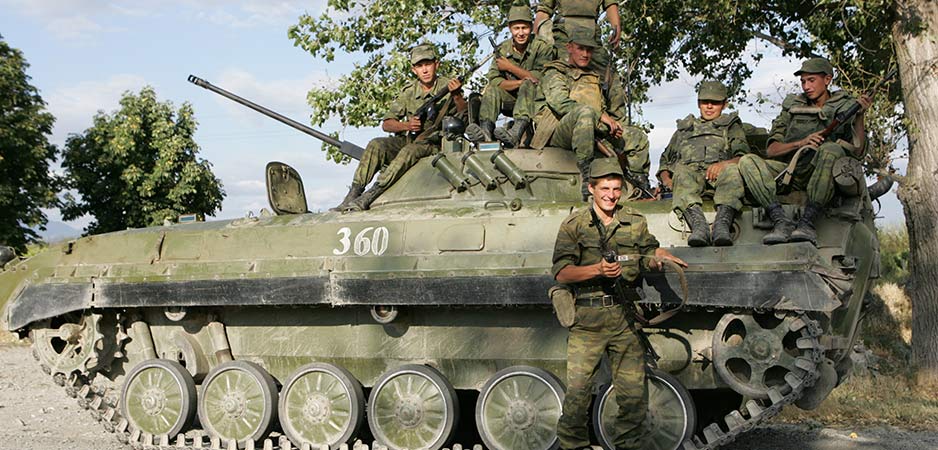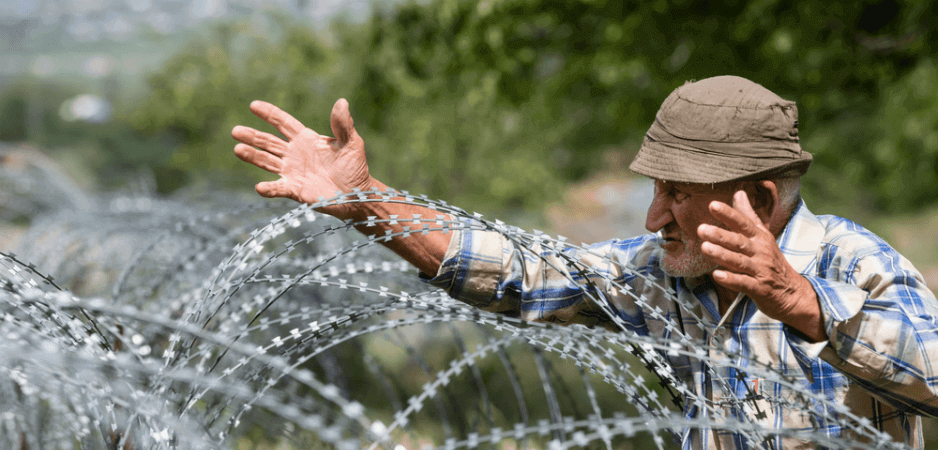The disputed existence of the breakaway republics of Abkhazia and South Ossetia has come into focus again in the context of the ongoing diplomatic dispute between Russia and Georgia and the August anniversary of the 2008 Russo-Georgian War. Abkhazia remains at the heart of discussions because its upcoming election on August 25 is reflective of the duplicity of post-Soviet electoral spectacle and a hope for positive change that seems to escape citizens. Elections in breakaway republics shift the focus away from geopolitics and toward the idiosyncrasies inherent in political cultures unique to all nations.
A Deterioration of Relations
In June, a series of anti-Russian protests broke out in the Georgian capital Tbilisi and across the country. The appearance of high-ranking Russian politician Sergey Gavrilov at the Interparliamentary Assembly on Orthodoxy and his consequent seating in the speaker’s chair inflamed Georgian sensibilities. But to identify this act as a catalyst for the protests is to oversimply matters, as deeper frustrations with the Georgian Dream ruling party are a factor as well.
The Georgian Dream attempted to balance relations with the West while at the same time ensuring a mutually beneficial relationship with Russia. Voters within the country are increasingly displeased with internal political affairs. The sight of a Russian politician occupying the chair of the speaker of parliament could easily be construed as Moscow’s long arm reaching toward its southern neighbor, or as an act of occupation. It was viewed through this lens when Georgian commentator Giorgi Gabunia went on a televised expletive-ridden rant labeling Russian President Vladimir Putin a “miserable creature” and “stinking invader.” Further, Gabunia crossed even the lowest of professional lines by mocking Putin’s deceased parents.
A deterioration of bilateral relations ensued. Russian lawmakers sought economic sanctions, but Putin rejected them. He cited the need to deescalate the situation and not act in a manner that could easily play in the hands of Georgian provocateurs. Rather, a flight ban between the two countries became effective on July 8.
The act of labeling Russia as an occupier on Georgian territory is intrinsically linked to its financial subsidies and military installations in Abkhazia and South Ossetia. Phrases of this type are meant to send signals to governments at the highest level, as well as to opposition movements, but it is ordinary Abkhazians who are made to suffer the consequences. For instance, the bilateral distress urged Abkhaz authorities to close the Enguri Bridge crossing, a passage point into Georgia proper. Students could not sit exams on Georgian territory, foreigners were barred from entering the breakaway republic “indefinitely” and its citizens prohibited from leaving. Security services stated it was a compulsory action. Restriction of movement undoubtedly has negative effects on locals and their economic interactions.
Moscow often states that the international community’s general acceptance of the Georgian narrative regarding its breakaway republics is problematic for any future resolution. The term “occupier” must be handled with care in this context too. Georgia is entitled to that principle and to expressing displeasure over infringements of its sovereignty and territorial integrity. However, Abkhazia is a matter that should be dealt with through dialogue between Sukhumi and Tbilisi rather than treated as a byproduct of Russo-Georgian relations, as has been done by the international community. For instance, a statement on August 8 by the US and various European countries called for Russia to remove its troops from the breakaway republics on the anniversary of the 2008 conflict.
An Independent Streak
Abkhazia focused on independence during the Soviet era, and particularly following the extremely divisive and bloody war with Georgia in 1992-93. It is not a new phenomenon that must be understood as a homegrown movement. Russian military involvement (through the installation of army bases) undoubtedly supports the image of occupiers, but this narrative completely bypasses Abkhazian independence goals. It also negates a difficult inter-ethnic history in the Caucasian country. Hopes for independence or a quasi-independent status within Georgia are left unaddressed because the label of occupation suggests Russian presence is against Abkhazia’s will and Sukhumi is under duress.
There is no doubt that Russia officially interfered in the region by providing passports to augment the number of Russian citizens in Abkhazia as early as 2002. However, the establishment of a military presence in Gudauta and further integration of Abkhazian troops with the Russian armed forces means that Russia acts as the guarantor of security for the de facto state. This not an ideal framework and definitely one that does not elicit agreement in the international community, but it provides Abkhazia with assurances that it will not face hard power, such as future military operations, from Georgia.
As a result, Tbilisi understood that soft power initiatives such as those involving commerce, education and social cohesion are the most advantageous ways forward. Investment in the future of Abkhazia is key to determining which side emerges as the most beneficial partner for Abkhazian interests.
It must be acknowledged that the use of strong diplomatic language begets a similar response. Reacting to the use of the phrase occupiers by the Georgian President Salome Zurabishvili, in Gabunia’s rant and on signs held by protesters, Russian replied with equally strong rhetoric. Senior lawmaker Pyotr Tolstoy stated that “Abkhazia and South Ossetia will never be part of Georgia again. Remember that very well. They will never be your regions again … Russia will be supporting their independence.”
Such a reaction was to be expected as it makes little diplomatic sense to poke the sleeping bear that holds all the power. Georgians may be fighting for independence and autonomy in the political domain, but strongly pushing the occupation narrative has direct consequences upon the breakaway republics at the heart of the matter. This cannot be viewed as a rudimentary diplomatic mistake, but rather a vehicle to create solidarity in domestic politics. Georgians across the political sphere can agree that exhibitions of Russian influence internally are detrimental, and thus it is a cohesive angle.
Political Culture
Abkhazia is enormously dependent on financial assistance from Moscow and, accordingly, Russia is afforded political leverage. Nonetheless, it would be simplistic to argue that politicians are pawns acting according to the demands of their guarantors of security and capital. As Thomas de Waal succinctly summarized, authorities in Sukhumi rejected an integration treaty with Moscow in 2014 and continue to prohibit the sale of real estate to foreign (read Russian) citizens. Further, lawmakers remain wary of a situation akin to Russia’s annexation of Crimea developing and remain unhappy with a continued decrease in Russian aid. This aligns with an assertion in 2016 by Mikhail Neyzhmakov, a senior analyst at the Russian Agency for Political and Economic Communications, that it “is hard to influence the situation in Abkhazia from Moscow.”
Abkhazia has its own political culture that is reflective of its ethnicity and ideas about independence. The breakaway republic hopes to one day exist as a sovereign territory, under neither Russian or Georgian authority. Meanwhile, presidential elections are scheduled for August 25 and, as a result, developments within the territory will keep it in the news cycle for the short term.
Elections in de facto states are often unmonitored and considered illegitimate outright, but they offer insight in internal affairs often overlooked by the international media. It may seem perplexing to those in established democracies, but the matter of independence has not dominated the Abkhaz presidential elections. Rather, important issues similar to those in sovereign states remain widely discussed. Each presidential campaign identified crime, corruption and the need for constitutional reform as the key topics important to the indigenous political class. Nevertheless, actionable plans to rectify large scale corruption or manage localized crime continue to escape those seeking to attain office. For instance, incumbent Raul Khajimba stated: “Corruption has not disappeared and never, I think, will disappear. We need to minimize it as far as possible.”
Abkhaz citizens have their own views of pertinent electoral concerns and visions of a new leader. They hope that a new president will address a lack of infrastructure and stable bureaucratic systems, such as policing. Unemployment and low wages continue to be a serious issue. Georgian sources assume that the unemployment rate in Abkhazia is between 40% and 70%. General criminality and government corruption round out the significant issues identified by citizens. Sadly, no one expects any changes in the near future.
Further, it is interesting to consider the qualities Abkhaz citizens hope will be embodied in their next president. Honesty, youth, education and love of country are replies typical of those seeking a leader representative of hope and change. These points are demonstrative of a country engaged in a unique political environment, rather than one often described as internally powerless and completely submissive to Moscow.
As in many post-Soviet spaces, elections stimulate drama. Aslan Bzhaniya, a high-ranking opposition figure and parliamentary deputy of the United Abkhazia party, suddenly fell ill in the run-up to the original July 21 election date. Bzhaniya and his supporters insist that he was poisoned and is recovering after being hospitalized in Germany. A collective Abkhaz opposition requested that the current administration postpone elections until October so that Bzhaniya can take part. This request was consequently denied, and the opposition took to the streets to protest — a common manifestation of Abkhaz disenchantment. Khajimba finally relented and reached an agreement to hold elections in August.
Nine candidates are registered to run for the presidency. The incumbent, Raul Khajimba of the Forum for the National Unity of Abkhazia party, has held the post since 2014 and will face challengers who have experience in governance. Both Shamil Adzinba and Oleg Arshba served in the Khajimba administration: the former as deputy prime minister and the latter as deputy foreign minister. For added drama, Arshba’s campaign headquarters were bombed in the early hours of August 21. Numerous businessmen with links to the government and particular sectors, such as telecommunications or agriculture, hope to succeed as well. Key factors for electability still focus on a continuation of positive relations with Moscow as well as keeping relative cohesion in Abkhaz society.
Also demonstrative of Abkhazia’s political culture is the appearance of different political parties. Active opposition comes in the form of Amtsakhara, which originated as a public organization representing concerns of veterans of the 1992-93 war and then subsequently developed into a fully-fledged political party promoting Abkhaz nationalism. Its candidate, Alkhas Kvitsinia, was conscripted to represent the larger opposition bloc loyal to Bzhaniya. In the past, the party has gone as far as to demand the resignation of President Khajimba due to a series of complaints over a 2016 referendum asking whether early presidential elections should have been held that year. The political framework and interactions between parties sometimes appear chaotic, but it is demonstrative of a de facto state conducting internal political affairs according to its own internal dynamics. It is simply not the case of a protectorate following directions from Moscow.
Vladimir Putin’s meeting with Khajimba on August 6 in Sochi under the specter of strained relations between Moscow and Tbilisi and the forthcoming election resulted in strong reactions as well. The two discussed matters related to Abkhaz economic development and the possibility of opening an airport, but the real story rests with the symbolism of the meeting held on the anniversary of the eve of the Russo-Georgian War.
Tbilisi condemned the meeting as a provocation meant to continue the delegitimization of Georgian territorial integrity. On the other hand, many considered the summit as political messaging indicative of the Kremlin’s preferred choice in the upcoming election. The notion that Moscow prefers Khajimba above others is plausible but hardly set in stone. All candidates express positive views and trustworthiness toward Russian authorities, so there is room to maneuver within the sphere of Abkhaz politics. It is managed stability that Russia values more than the actors who will guarantee it.
Interest in Abkhazia’s politics will fluctuate according to the wider diplomatic environment surrounding it. It may be dramatic to use larger events to place Abkhazia’s woes in context, but addressing matters at this level only leads to histrionics and political maneuvering. The ongoing dispute between Russia and Georgia spurred by the accusations of occupation subsequently draws analysis away from political inference and toward matters where “occupation” is a tangible conclusion. However, a focus on accusations, bilateral relations and geopolitics negates the internal political environment in Abkhazia.
The election provides a mixed bag of political observations. It is important that Abkhaz political culture continues to develop and an opposition movement exists. These are laudable traits when the global community considers the Black Sea territory as a client state. At the same time, perennial problems such as corruption and a lack of development continue to dominate campaign discourse, but little is done to improve the situation. Abkhaz citizens want change; however, they acknowledge that it is unlikely due to the entrenched political class and lack of economic opportunity. It cannot be expressed enough that the Abkhaz question must be addressed independently, rather than as a side note of regional affairs.
The views expressed in this article are the author’s own and do not necessarily reflect Fair Observer’s editorial policy.
For more than 10 years, Fair Observer has been free, fair and independent. No billionaire owns us, no advertisers control us. We are a reader-supported nonprofit. Unlike many other publications, we keep our content free for readers regardless of where they live or whether they can afford to pay. We have no paywalls and no ads.
In the post-truth era of fake news, echo chambers and filter bubbles, we publish a plurality of perspectives from around the world. Anyone can publish with us, but everyone goes through a rigorous editorial process. So, you get fact-checked, well-reasoned content instead of noise.
We publish 2,500+ voices from 90+ countries. We also conduct education and training programs
on subjects ranging from digital media and journalism to writing and critical thinking. This
doesn’t come cheap. Servers, editors, trainers and web developers cost
money.
Please consider supporting us on a regular basis as a recurring donor or a
sustaining member.
Support Fair Observer
We rely on your support for our independence, diversity and quality.
Will you support FO’s journalism?
We rely on your support for our independence, diversity and quality.






